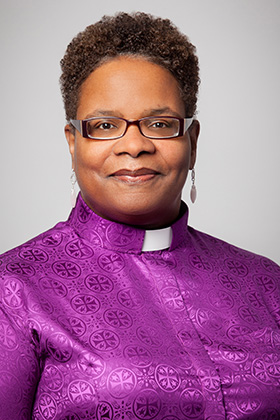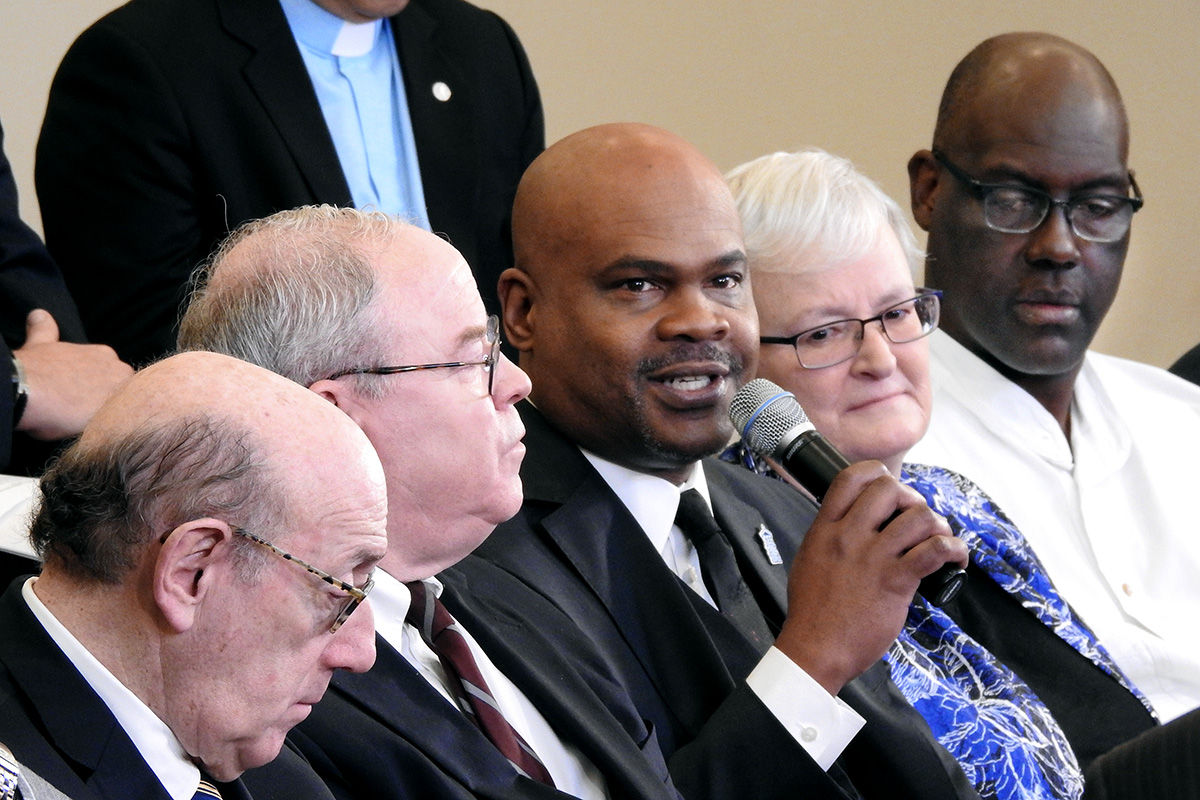$39 million.
That’s the amount set aside to go to minority ministries in the proposed protocol to settle differences about LGBTQ inclusion in The United Methodist Church. It is $14 million more than the new, as-yet unnamed traditionalist denomination would get to fund its startup.
What does the LGBTQ issue have to do with the support of traditionally underserved racial minorities in the church?
“As you think about any kind of restructure or budget reductions or reallocations or whatever the case may be, historically marginalized communities usually become affected,” said the Rev. Junius Dotson, who took part in the negotiations and is top executive of United Methodist Discipleship Ministries.
“That was a real concern, that we keep the most vulnerable communities in our purview.”
The Protocol of Reconciliation & Grace Through Separation, announced earlier this month by a broad coalition of church leaders, is still being drafted as legislation and would require approval by the 2020 General Conference.
The $39 million, to be distributed over eight years, would essentially guarantee that minority ministries be funded at their current levels for that period, Dotson said.
“The idea was to try to avoid a disruption in funding and … to make clear that the church has a commitment to these communities of color.”
The protocol directs that “the goal of these earmarked funds shall be to strengthen ministries by and for Asian, black, Hispanic-Latino, Native American and Pacific Islander communities, encourage the full participation of historically marginalized communities in the governance and decision-making of the church and ensure that the vital work of training the next generation of leaders by Africa University will be maintained.”
That marginalized communities have been a central part of the discussion about whether and how The United Methodist Church will divide or reorganize is “historic,” said Bishop LaTrelle Easterling of the Baltimore-Washington Conference, who was on the panel that negotiated the protocol.

Bishop LaTrelle Easterling
Photo by Tony Richards for the Baltimore-Washington Conference.
“That has not happened in the past,” Easterling said. “Usually, those things are secondary. They are added on after all the major decisions have been made and things have begun to move forward. It’s an afterthought.
“That’s not true here.”
Under the protocol, the post-separation United Methodist Church would contribute $26 million to the fund and the remaining $13 million would come from monies the proposed new traditionalist Methodist church agreed to divert from the initial $38 million it was to receive.
The Connectional Table, a United Methodist church council coordinating the work of ministry and money, would decide who gets what from the $39 million fund. Churches who move to the new traditionalist Methodist denomination would be eligible to participate in programs and grants that serve their ethnic members as long as they meet the requirements.
Randall Miller said he brought concerns to the mediation sessions “about racial justice and feeling like The United Methodist Church’s commitment to racial-ethnic communities in the U.S. was not where it should be.” Miller is a faculty associate in United Methodist Studies, Ethics and Leadership at Pacific School of Religion in Berkeley, California.
“So it was a bit of a balancing act … in terms of bringing all of these issues forward,” said Miller, a member of the negotiating team.
The assets of The United Methodist Church were acquired in part through historic injustices, said the Rev. Tom Berlin, lead pastor of Floris United Methodist Church in Herndon, Virginia, and yet another participant in the protocol negotiations.
“The United Methodist Church was complicit in ownership of enslaved people who in some places literally helped build our churches,” Berlin said.
“It is also an investment in our missional future,” he added. “If you invest in African Americans, Latino-Hispanics, Pacific Islanders and Asian Americans, you are investing in the future of the U.S. because we are increasingly becoming a diverse country. Our future in the church is going to be connected to our capacity to reach different people.”
Africa University in Zimbabwe, a United Methodist school, is named in the protocol because “of the historic wrongs we have done on the continent of Africa,” Berlin said.
“We currently invest in Africa University, so we are insuring the continuation of work in these spaces,” he said. “We didn’t say how the money has to be used. We simply said that investment should continue.”
Both Easterling and Dotson indicated that the protocol deal would have been jeopardized without the section on minority allocations.
“It was a very important piece for me,” Dotson said.
Easterling said she was “exceedingly interested” in the deal including the allocation to minority ministries.
“Our caucuses know they’re supported and they’re part of our central ministry,” Easterling said. “Not a distraction, not something that people are undertaking out of the goodness of their hearts, but central to the work of mission and ministry.”
Patterson is a UM News reporter in Nashville, Tennessee. Contact him at 615-742-5470 or newsdesk@umcom.org. To read more United Methodist news, subscribe to the free Daily or Weekly Digests.
Like what you're reading? Support the ministry of UM News! Your support ensures the latest denominational news, dynamic stories and informative articles will continue to connect our global community. Make a tax-deductible donation at ResourceUMC.org/GiveUMCom.




